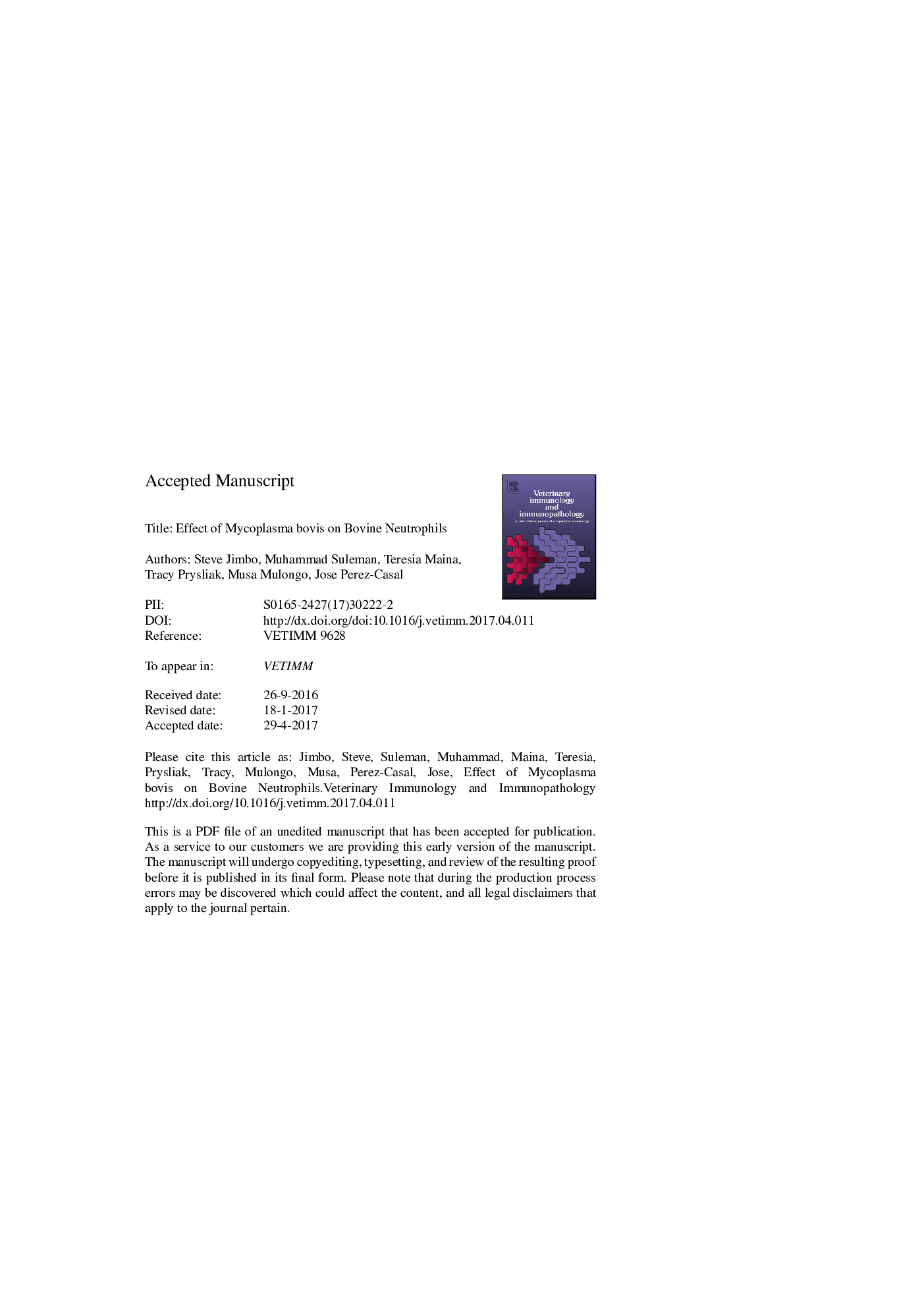| Article ID | Journal | Published Year | Pages | File Type |
|---|---|---|---|---|
| 5544709 | Veterinary Immunology and Immunopathology | 2017 | 31 Pages |
Abstract
Mycoplasma bovis (M. bovis) is a small bacterium that lacks a cell wall. M. bovis infection results in chronic pneumonia and polyarthritis syndrome (CPPS), otitis media, conjunctivitis, and meningitis in feedlot cattle and mastitis in dairy cattle. Numerous studies of peripheral mononuclear cells (PBMC) indicate that M. bovis evades host immunity through targeted effects on immune cell activity, including inhibition of effector function and simultaneous aberrant activation of immune cell activity that has no effect on protection against the bacterium. Few studies have addressed the interaction between M. bovis and neutrophils, one of the most important cell subsets of innate immunity. We hypothesized that M. bovis modifies specific neutrophil activities to support its persistence and systemic dissemination. In this study, we demonstrate that M. bovis enhances neutrophil apoptosis, stimulates production of pro-inflammatory cytokines, IL-12 and TNF-α, inhibits production of nitric oxide (NO) but augments elastase release. We also show that IL-17 an inflammatory cytokine produced by Th-17 cells does not enhance the capacity of neutrophils to destroy M. bovis. These findings present novel mechanisms of mycoplasma evasion of host innate immunity and provide potential opportunities for immuno-therapeutic interventions.
Keywords
Related Topics
Life Sciences
Agricultural and Biological Sciences
Animal Science and Zoology
Authors
Steve Jimbo, Muhammad Suleman, Teresia Maina, Tracy Prysliak, Musa Mulongo, Jose Perez-Casal,
